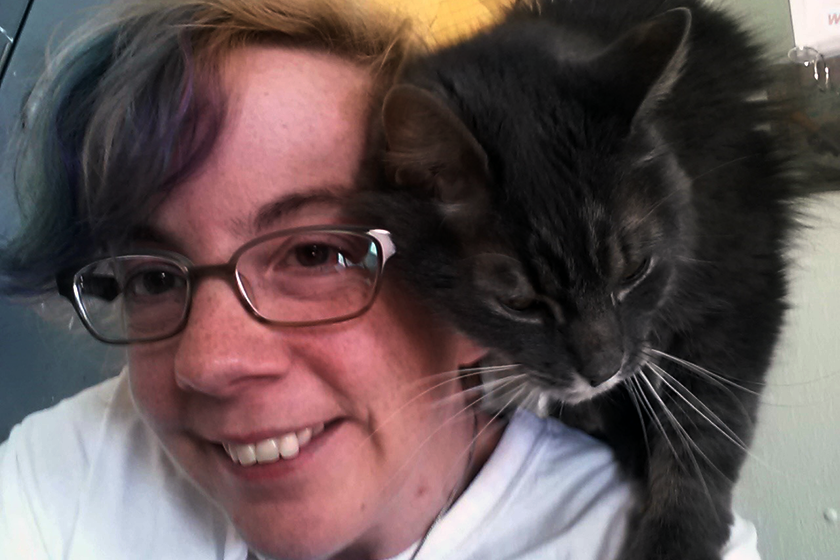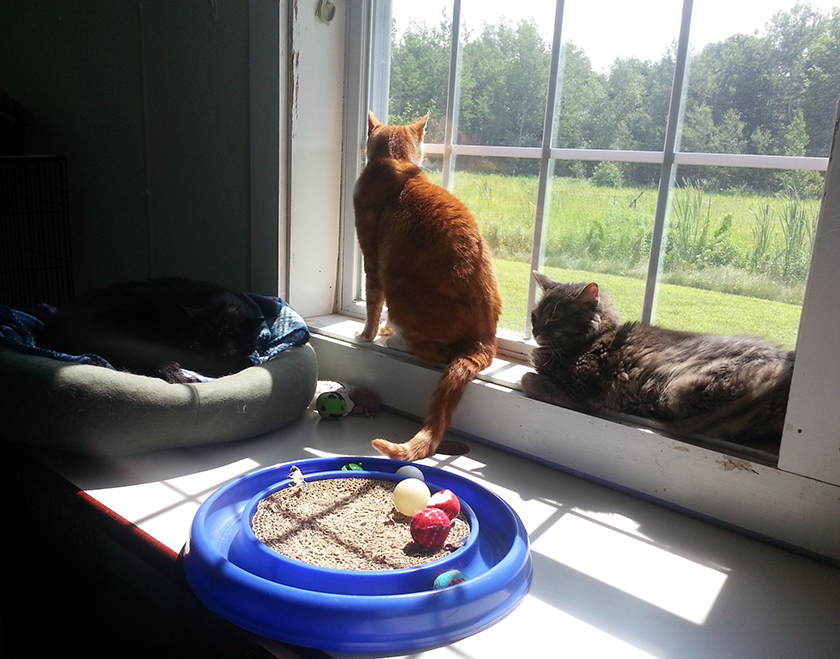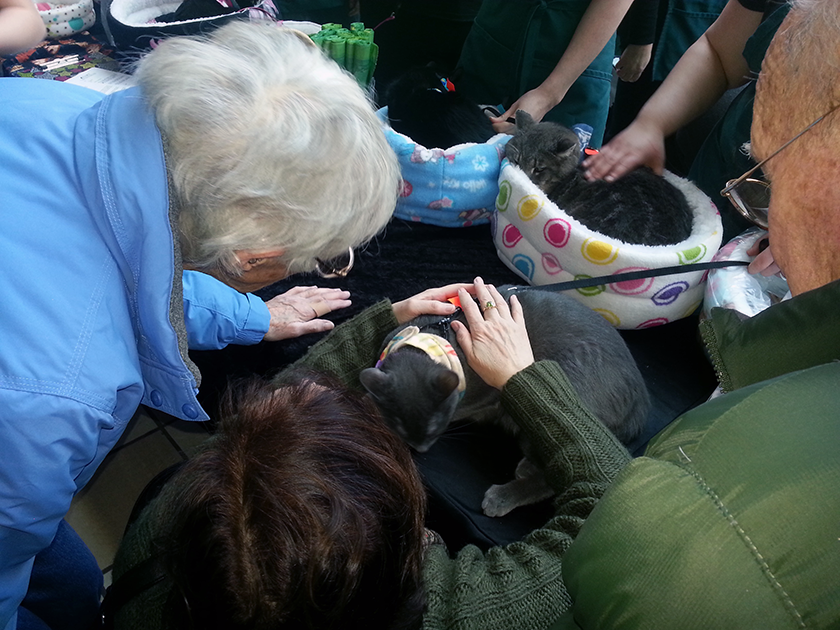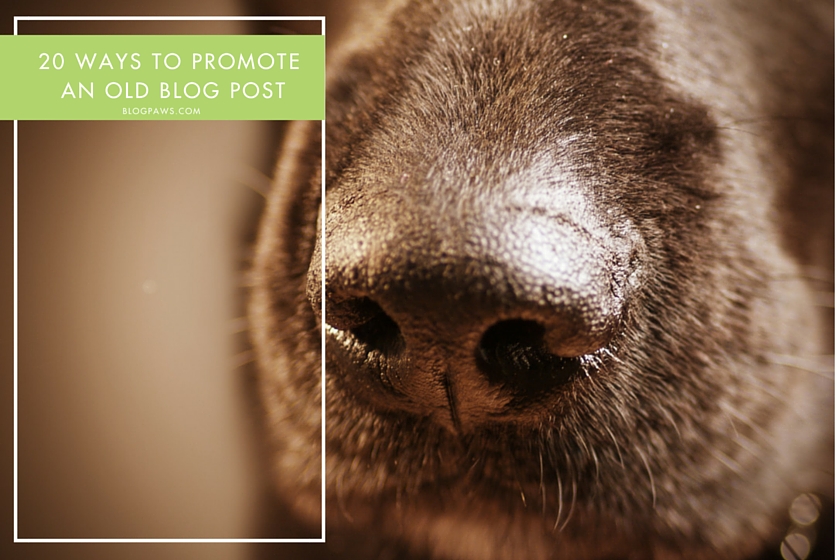Adopt An Adult Cat for a Lifetime of Love
Guest post by JaneA Kelley
Most people who go to a shelter wanting to adopt a cat have their hearts set on a kitten. Since there never seems to be a shortage of kittens that need homes, adult cats can languish in shelters for years – that is, if they’re lucky.
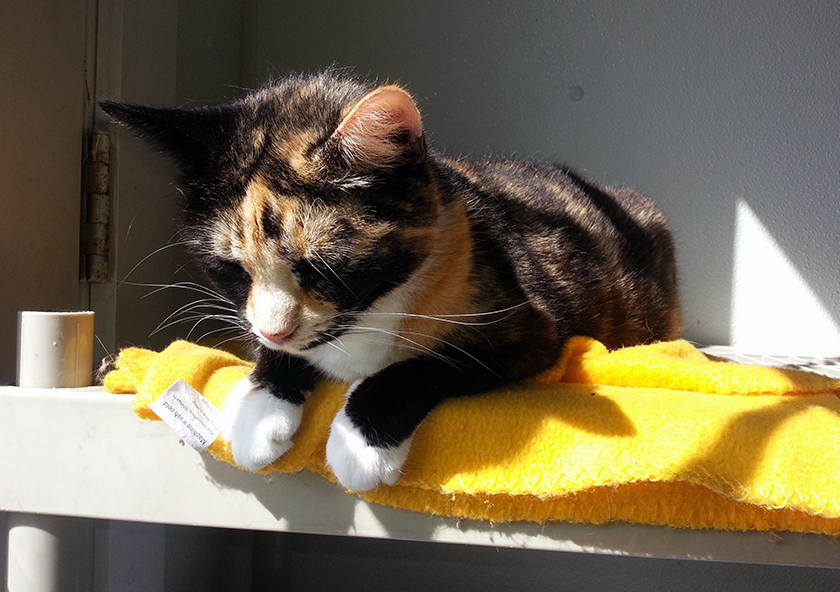 In open-admission shelters, adult and older cats are euthanized at a rate many times that of kittens. There are just not enough cages to accommodate the grown-up felines that find themselves in those shelters, and they only have a certain amount of time to make a good impression on potential adopters.
In open-admission shelters, adult and older cats are euthanized at a rate many times that of kittens. There are just not enough cages to accommodate the grown-up felines that find themselves in those shelters, and they only have a certain amount of time to make a good impression on potential adopters.
But I’m here to tell you, as a person who has adopted adult cats, that there are plenty of reasons you might want to select a more mature kitty for your home.
- An adult cat’s temperament is fully developed.
When you bring a grown cat into your home, you know what you’re getting into. Many shelters study the “purrsonality” of cats in their care and when you tell them about your lifestyle, they’ll be able to find a good match with you – and know that match is going to stay a match.
- If you have young kids, a young adult could be a better fit.
You know that little kids can be rough with cats. It’s not necessarily the kids’ fault; it’s just a phase in their development. An adult cat is more likely to be able to tolerate those first “be gentle with the kitty” lessons than a kitten, and may be able to do so without scratching or biting the kid.
- If you’re away all day, an adult cat will tolerate that better.
Kittens can get mischievous when they’re bored and lonely, and a mischievous kitten could get into big trouble. The kind of trouble that lands you and Kitty in the emergency clinic. Adult cats are more likely to spend their days sleeping, and once they get used to your schedule they’ll be waiting eagerly for you at the door when you come home.
- You’ll still have plenty of healthy years together.
Cats can live well into their teens and even their early 20s, and do so in very good health. If you adopt an older adult, you’ll still have time to settle in and have many happy days together.
- If you’re an older adult, an older cat may be a better choice.
As I said above, cats can live very long lives. If you’re a senior citizen and you adopt a kitten, that cat could end up outliving you. I see a lot of cats in shelters because their owners died and the living relatives couldn’t take the kitty in. Also, if you have issues with mobility or balance, the antics of an excited kitten could result in falls.
- If you already have an older cat, another adult could be a better choice.
Your senior kitty isn’t going to want to deal with the games an energetic little kitten is going to play. Your current cat stands a better chance of getting along with a new cat closer to her age and energy level.
- If you want or need a declawed cat, some adult cats in shelters already are.
Don’t get me wrong, I’m totally against declawing, and I would strongly discourage anyone from having a cat declawed. But if you need a declawed cat because, say, you have a compromised immune system and cat scratches could be a serious health risk, there are plenty to be found in shelters. When I volunteered at a no-kill cat shelter, we had a number of declawed cats waiting for people to adopt them.
- Adult cats are ever so grateful.
I adopted my sweet Thomas when he was three years old. I fell in love with the little guy when I first met him, dreadfully sick and sad because he had been surrendered to the shelter after his owner entered a nursing home. Once I got him home and he came out of his shell, he turned out to be the biggest sweetie ever to walk the earth. He’s welcomed other cats into the family with open paws, and he loves nothing more than a good snuggle – whether it’s with me or another kitty friend.
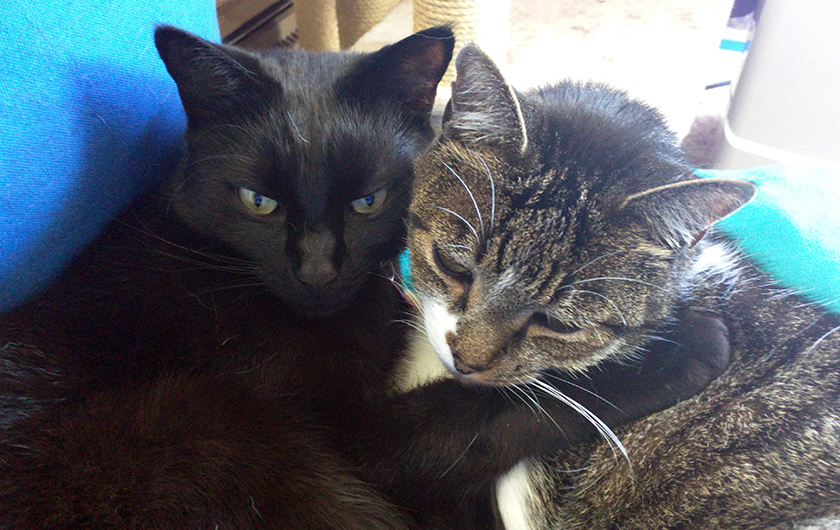 Next time you’re ready to adopt a cat, please do me a favor: walk past the kittens and check out the adult cats. If you bring one home, you’ll be very glad you did.
Next time you’re ready to adopt a cat, please do me a favor: walk past the kittens and check out the adult cats. If you bring one home, you’ll be very glad you did.
JaneA Kelley is the webmaster and chief cat slave of the award-winning blog, Paws and Effect. She is a contributing author for the print and online versions of Catster Magazine, and serves as the secretary and social media manager for Diabetic Cats in Need, a nonprofit dedicated to helping people care for their diabetic cats.

